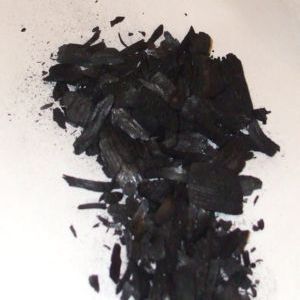ACR accepting comments on biochar methodology for carbon credits




October 2, 2013
BY Erin Krueger
The American Carbon Registry has opened a public comment period on a new methodology to measure carbon reductions associated with biochar produced via the pyrolysis process. The methodology was prepared by The Climate trust, the Prasino Group, the International Biochar Initiative, and Carbon Consulting.
According to the ACR, the methodology quantifies and credits both the avoided emissions from combustion or decomposition of biomass in the baseline and enhanced carbon sequestration at sites where biochar is applied. The methodology considers biochar produced from forestry and agricultural residues, municipal solid waste (MSW) and other biomass-based materials.
Advertisement
The methodology essentially outlines the conditions necessary in order for carbon offset credits to be generated for biochar. The ACR, a nonprofit enterprise of Winrock International, is a carbon offset program that is active in the voluntary carbon market and is an approved offset project registry for the California Cap-and-Trade Program.
To generate carbon offsets for biochar, a project must utilize feedstocks that meet the definition of biomass residue. Credits cannot be generated for biochar made from purpose-grown crops. Among other requirements, the ratio of hydrogen to organic carbon must be less than 0.7 according to a test method outlined by the International Biochar Initiative. The resulting biochar must also be applied to land or mixed with another soil, compost or amendment medium. In addition, the methodology sets a 2 inch limit on the size of biochar particles.
Advertisement
The full biochar methodology can be downloaded from the ACR website. The organization is inviting comments from its members, project proponents and other interested parties. Comments are due Oct. 25.
Related Stories
The U.S. Department of Energy Bioenergy Technologies Office (BETO) announced up to $23 million in funding to support research and development (R&D) of domestic chemicals and fuels from biomass and waste resources.
The U.S. DOE has announced its intent to issue funding to support high-impact research and development (R&D) projects in two priority areas: sustainable propane and renewable chemicals and algal system cultivation and preprocessing.
Sens. Sherrod Brown, D-Ohio, and Pete Ricketts, R-Neb., in August introduced the Renewable Chemicals Act, a bill that aims to create a tax credit to support the production of biobased chemicals.
The Chemical Catalysis for Bioenergy Consortium, a consortium of the U.S. DOE’s Bioenergy Technologies Office, has launched an effort that aims to gather community input on the development of new biomass processing facilities.
USDA on March 8 celebrated the second annual National Biobased Products Day, a celebration to raise public awareness of biobased products, their benefits and their contributions to the U.S. economy and rural communities.
Upcoming Events










